Every reading is partial, but that does not absolve us from the quest for meaning, which defines us as a species
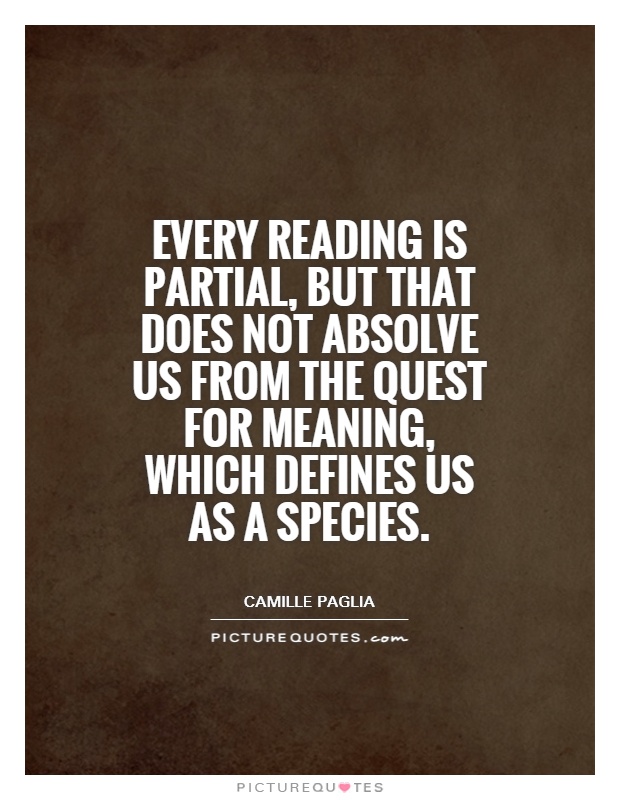
Every reading is partial, but that does not absolve us from the quest for meaning, which defines us as a species
Camille Paglia, a renowned cultural critic and feminist scholar, is no stranger to the idea that every reading is partial. Throughout her career, Paglia has challenged traditional interpretations of art, literature, and culture, arguing that there are multiple layers of meaning that can be uncovered through different perspectives. In her work, she often emphasizes the importance of engaging with texts critically and actively, rather than simply accepting the interpretations that are handed to us.Paglia's belief that every reading is partial is rooted in her understanding of the complexity and ambiguity of human experience. She recognizes that our interpretations of texts are shaped by our own biases, experiences, and cultural backgrounds, and that no single reading can capture the full depth and richness of a work. However, Paglia does not see this partiality as a limitation, but rather as a challenge to delve deeper into the text and uncover new layers of meaning.
For Paglia, the quest for meaning is essential to our humanity. She argues that it is through our engagement with art, literature, and culture that we define ourselves as a species. By seeking out meaning in the world around us, we are able to connect with others, explore new ideas, and expand our understanding of the human experience. In this sense, the quest for meaning is not just a passive activity, but an active and transformative process that shapes who we are and how we relate to the world.
Paglia's approach to reading and interpretation is deeply influenced by her belief in the power of art and culture to challenge and provoke us. She encourages readers to approach texts with an open mind, to question conventional wisdom, and to embrace the complexity and ambiguity of the human experience. In doing so, she believes that we can uncover new insights, challenge our assumptions, and ultimately enrich our understanding of ourselves and the world around us.
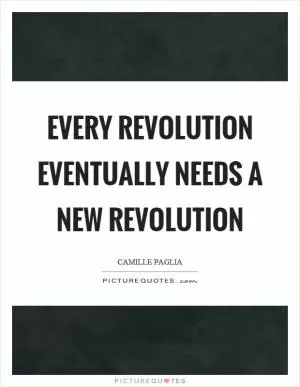


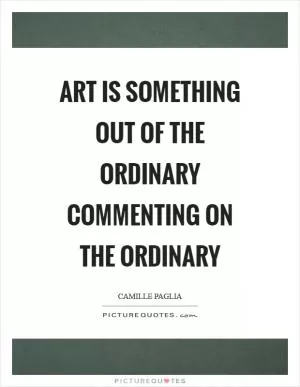
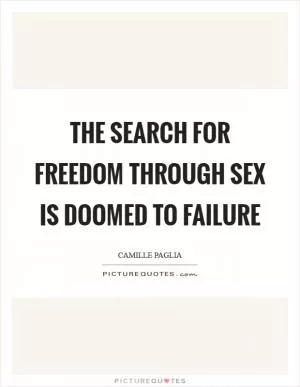
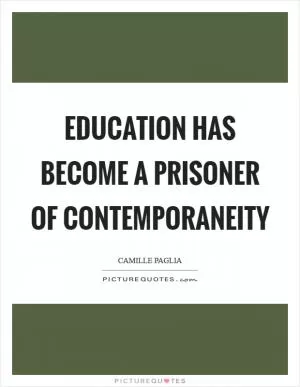

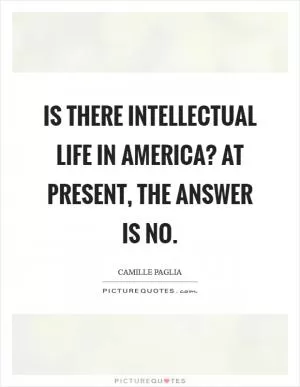




 Friendship Quotes
Friendship Quotes Love Quotes
Love Quotes Life Quotes
Life Quotes Funny Quotes
Funny Quotes Motivational Quotes
Motivational Quotes Inspirational Quotes
Inspirational Quotes